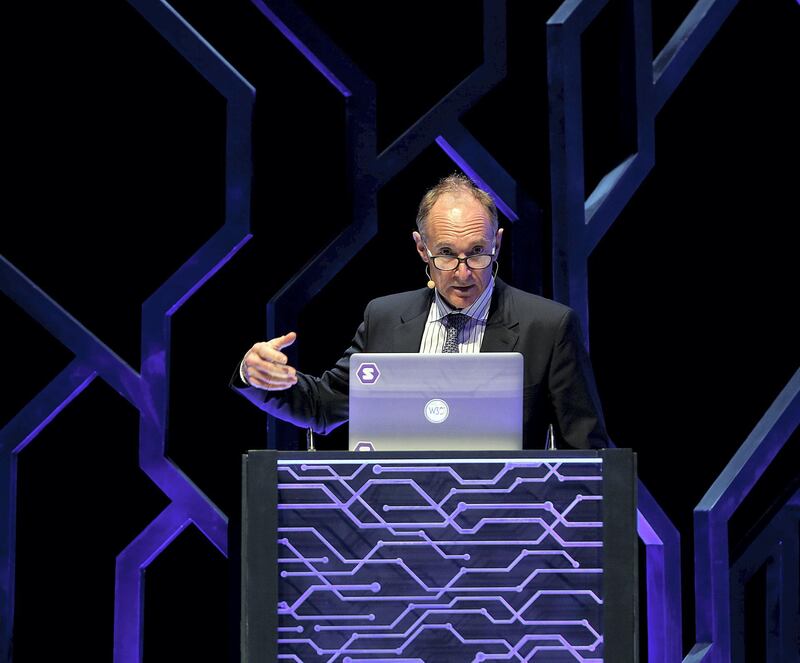"The world wide web was built with all good intentions." So said its founder Sir Tim Berners-Lee – the man responsible for inventing a way in 1989 to disseminate information over the internet – at the International Government Communication Forum in Sharjah this week. Mr Berners-Lee extolled the virtues of open data, although he acknowledged the scope for abuse. Social media, he said, is too often used as a tool for manipulation and hostility. A balanced view at a time of heightened concern about the dangers of social media is crucial. In the wake of the Cambridge Analytica scandal engulfing Facebook, it is too easy to overlook the wonders and seismic powers of such tools, many of which we take for granted in a digital age, despite their relatively recent appearance. With more websites today than the 100 billion neurons in our brains, any call to abandon such networks altogether would be futile.
Their basic proposition – to enable efficient exchange between like-minded individuals – lives on, even if abuse too often eclipses healthy discussion. Still, it has great power for good. Last week hundreds of thousands of people took to the streets of Washington DC to demand action on gun control in a march largely organised on Facebook and Twitter. Social media fights loneliness and unites those with niche interests. Platforms can spread information quickly in times of crisis or disaster. They give a podium to charities and advocacy groups, raising awareness about important subjects. For most of us, they blur geographical boundaries, allowing us to connect with loved ones across the globe.
With heightened attention amid recent scandals, it appears we are reaching a fork in the road. Serious issues need addressing. Twitter provides a mouthpiece to anonymous abusers while Facebook subsists on the user data it harvests. As the 2016 US presidential election attests, both can be manipulated to subvert democratic procedures. In the midst of YouTube's content is a disturbing pit of inappropriate material, violence and pornography. Evidently the balance between protecting citizens and fostering innovation is skewed. For too long, internet giants have shown scant regard for the privacy of their users. It is time they grasped their role and acted transparently. Drastic new measures by the EU in May will regulate how online brands collect personal data about consumers. Apple's chief executive Tim Cook has also admitted more privacy regulations are essential. Meanwhile natural corrective forces like the stock market – where Facebook shares recently slid by 8 per cent – traditional media and people power, such as that used in the case of YouTuber Logan Paul, can be powerful in taking tech firms to task. Many inventions have a dark side; often that says more about the human potential to wreak harm as well as good than the technology itself. The scandal does not justify abandoning social media or smothering innovation. Both have potential for good. Whether it can be realised will depend on how we forge ahead from the current malaise.





